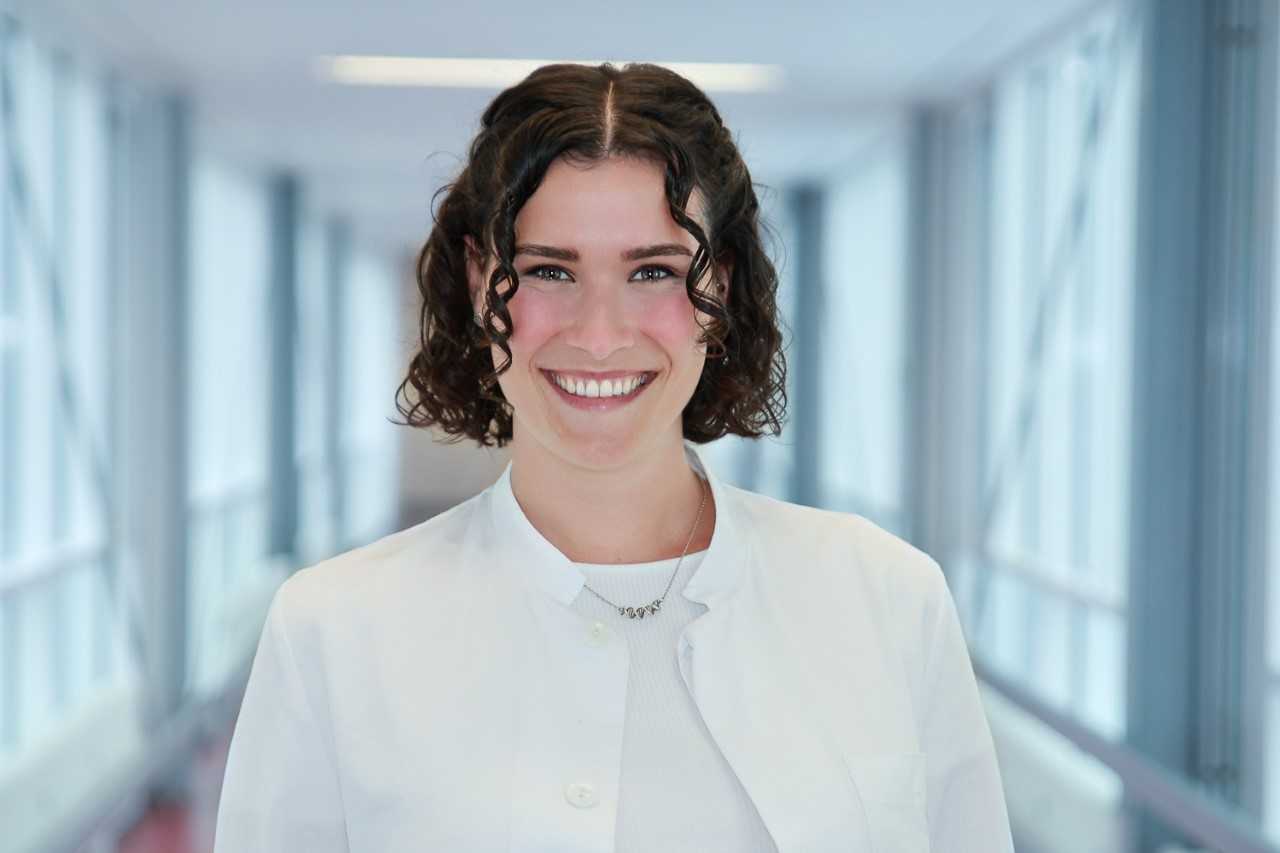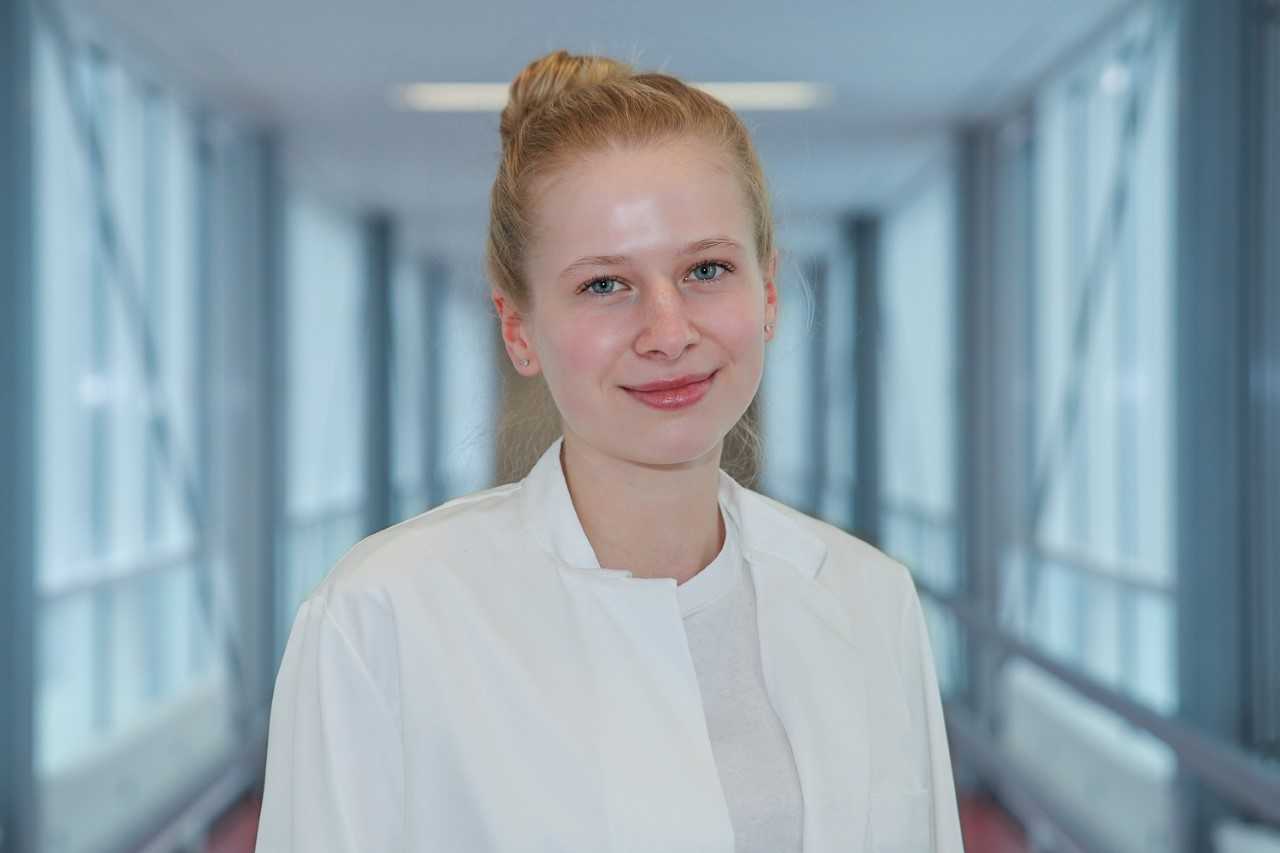AG Reproductive Medicine and Molecular Perinatology
Prof. Dr. med. Frauke von Versen-Höynck, M.Sc.
Prof. Dr. med. Frauke von Versen-Höynck, M.Sc.
Phone: 0511 532-6080 (office)
Phone: 0511 532-6084 (laboratory)
Fax: 0511 532-6081
EMail: vonversen-hoeynck.frauke@mh-hannover.de
Site map: How to find us
Research focus:
The original projects of the research group Reproductive Medicine and Molecular Perinatology initially dealt with obstetric and perinatal topics. For several years now, we have been focusing primarily on aspects of reproductive medicine and working on interdisciplinary basic science, translational and clinical research questions.
A focus of our basic research is currently investigating the reasons and mechanisms that lead to differences in maternal and child outcomes after the use of assisted reproduction technology procedures. Here we are interested, among other things, in the increased risk of hypertensive diseases of pregnancy and macrosomia in pregnancies that arose after the transfer of a previously frozen and thawed embryo (frozen thawed embryo transfer).
We are also investigating factors that contribute to reproductive aging but also premature vascular aging and thus possibly to an increased cardiovascular risk in later life.
A new research focus is dedicated to exploring the pathomechanisms of endometriosis that may lead to impaired fertility.
Projects currently being worked on:
Gynecologic Endocrinology and Reproductive Medicine:
► Establishing a harmonized data and biobank for researching the connections between endometriosis, infertility, and complicated pregnancy outcomes.
► Pathomechanisms of endometriosis related to infertility using a 3D organ-on-a-chip model
► Age-related decidualization defects of endometrial stromal cells in women with advanced maternal age (Endo-Age)
► Influence protocols of different frozen embryo transfer cycles on clinical, maternal and child outcomes
► Influence of corpus luteum products on decidualization, placental development and maternal health
► Influence of fertility treatment on maternal health and complications in pregnancy
► Influence of the pandemic and acceptance of vaccination against SARS-Cov2 in women who wish to have children
► Desire to have children and family planning in organ transplants
Molecular Perinatology:
► Regulatory mechanisms of gene expression linking impaired vascular health with preeclamptic pregnancies
► Epigenetic differences of maternal and fetal endothelial progenitor cells in healthy and complicated pregnancies
► Influence of immunosuppressive therapies on the health and function of endothelial progenitor cells in female kidney transplant recipients
► The role of vitamin D and DNA damage response proteins in the regulation of oxidative stress in preeclampsia
► The role of vitamin D in the pathophysiology of preeclampsia
- Prof. Dr. medical Anibh Das, Pediatric Renal and Metabolic Diseases, MHH
- Carl A. Hubel, PhD, Magee-Womens Research Institute, University of Pittsburgh, USA
- PD Dr. medical Ralf Dechend, Charite Berlin and Max Delbrück Center for Molecular Medicine, Berlin
- Prof. Dr. med Tanja Groten, Gynecological Clinic, Friedrich Schiller University Jena, Germany
- Valerie L. Baker, MD, Division of Reproductive Medicine, Stanford University, USA
- Virginia D. Winn, MD, PhD, Perinatal Biology Laboratory, Stanford University, USA
- Prof. Dr. med. Alexandra Bielfeld, UNIKID, Department of Obstetrics and Gynecology, University Hospital Düsseldorf
- Prof. Dr. Udo Markert, Placenta Lab, Department of Obstetrics, University Hospital Jena, Germany
- Prof. Dr. Martin Götte, Department of Obstetrics and Gynecology, University Hospital Münster
► German Research Foundation
► Boehringer Ingelheim Foundation Exploration Grant Program
► IFB Tx. (Integrated Research and Treatment Center Transplantation) Start-up funding by BMBF
► German Diabetes Society
► Preeclampsia Foundation
► European Union
► Federal Ministry of Education and Research (BMBF)
► also: HiLF program of the MHH, Society of Friends of the MHH
-
cand. med. Eva Scheer (supervision since 04/2025)
-
cand. med. Johanna Neubohn (supervision since 11/2024)
-
cand. rer. nat. Cara Juli (supervision since 09/2024)
-
cand. med. Amelie Gonder (supervision since 03/2024)
-
cand. med. Jasmin Neuhold (supervision since 03/2024)
-
cand. rer. nat. Julia Beckmann (supervision since 02/2024)
-
cand. med. Marlene Böhm (supervision since 10/2023)
-
cand. med. Nele Breuste (supervision since 06/2023)
Theses in the finalization:
- cand. med. Sara Meier (supervision since 08/2022)
- cand. med. Nina Schirm (supervision since 03/2020)
- cand. med. Lea Böhm (supervision since 03/2020)
- cand.med. Cara Schmidt (supervision since 10/2019)
- cand.med. Svenja Arifi-Ziemek (secondary supervisor since 08/2017)
- cand.med. Nadia Meyer (supervision since 08/2017)
- cand.med. Berina Kipke (supervision since 2015)
Alumni
2025
-
Jessica Kern: Fear of fertility side effects is a major cause for COVID-19 vaccine hesitance in infertile patients- eine multizentrische Befragung von Patientinnen in Kinderwunschbehandlung. (Dr. med., Hannover, 2025)
- Klara Leuckefeld: Age-related decidualization defects in human endometrial stromal cells (B.Sc. Biochemistry)
- Eva Scheer: How does weather influence the outcomes of in vitro fertilization and intracytoplasmic sperm injection (Science Module)
- Shona Wedner-Ross: The impact of the COVID-19 pandemic on women seeking fertility treatment in Germany: the patient´s perspective (Dr. med., Hanover, 2025)
2024
-
Johanna Neubohn: Clinical outcomes of stimulated cycle versus hormone replacement therapy cycle frozen embryo transfer in women with polycystic ovary syndrome (Science Module)
-
Jasmin Neuhold: Exploration of gender equality in Gynecology and Obstetrics (Science Module)
-
Amelie Gonder: Knowledge about fertility and perspectives on family planning among female physicians at Hannover Medical School (Science Module)
-
Clara Springer: Investigations on in vitro decidualization and relaxin effects in human endometrial stromal cells to elucidate mechanisms in the pathophysiology of preeclampsia (Dr. med., Hanover, 2024)
-
Tim Büder: Vitamin D3, DNA damage response proteins and the regulation of oxidative stress in preeclampsia (Dr. med., Hanover, 2024)
2023
-
Julia Beckmann: Studies on the functional significance of the alternative splice variant CADM1 of endothelial progenitor cells from umbilical cord blood (MSc Biomedicine, Hanover, November 2023)
-
Luka Kroning: Influence of the corpus luteum number in cryoembryo transfer cycles at the time of conception on neonatal health (Dr. med., Hanover, 2023)
-
Freya Waschkies: Pregnancy Outcomes After Frozen-Thawed Embryo Transfer in the Absence of a Corpus Luteum (Dr. med., Hanover, 2023)
-
Ina Sejko, Bsc: Human endometrial stromal cell decidualization (University of Goettingen, guest researcher 12/2022 bis 01/2023)
2022
- cand. PhD Maja Gajic, MSc: Hydroxychloroquine - a potential candidate for the treatment of preeclampsia (University of Graz, guest researcher 10/2021 to 07/2022)
2021
- Franka Kausch: Investigation of the influence of vitamin D3 on placental angiogenesis in vitro (Dr. med., Hanover, 2021)
2020
- Simone Warnecke: Hypoxia in the model of cultivated HUVECs - The role of sirtuins as regulators of aerobic energy metabolism (Dr. med., Hanover, 2020, second supervisor)
2019
- Catharina Meissner: Awareness, knowledge and perceptions of infertility, fertility assessment and assisted reproductive technologies in the era of oocyte freezing among female and male university students (Dr. med., Hanover, 2019)
- Mareike Sandvoß: HELLP syndrome - altered concentrations of the fatty acid oxidation regulator sirtuin 4 in hypoxia (Dr. med., Hanover, 2019, second supervisor)
2018
- Sophie Schmitz: Gestational diabetes mellitus: an evaluation of gynecologists' knowledge of guidelines and counseling behavior (Dr. med., Hanover, 2018)
- Akin Sarisin: The influence of adenosine and the A2B adenosine receptor on trophoblastic and endothelial functions during placental development (Dr. med., Hanover, 2018)
2017
- Lea Völkening: Functional characterization of RAD50 in mitosis (Dr. rer. nat., Hanover, 2017, second supervisor)
- Nina Dressler: BMI and season are associated with vitamin D deficiency in women with impaired fertility – a two center analysis (Dr. med., Hanover, 2017)
2016
- Sonja Helbig: Functional Consequences of CHEK2 and TERT Breast Cancer Risk Variants (Dr. rer. nat., Hanover, 2016, second supervisor)
2015
- Lars Brodowski: Studies on the effect of vitamin D on endothelial progenitor cells under pre-eclamptic conditions (Dr. med., Hanover, 2015)
- Juan Gui: Impact of gestational diabetes mellitus on endothelial colony-forming cell characteristics (PhD, China, 2015)
2014
- Sarah Hass: The influence of vitamin D₃ on endothelial repair processes in connection with preeclampsia (Dr. med., Hanover, 2014)
- Vera Kreuzer: The influence of the hypoxia-inducible molecule adenosine and its receptors A2A and A2B on placental processes (Dr. med., Hanover, 2014)
- May-Britt Heidrich: Preeclampsia and cardiovascular long-term risks - what do gynecologists know? (Dr. med., Hanover, 2014)
- Mary Doreen Meusel: The role of the adenosine receptor A2A in placental development processes (Dr. med., Hanover, 2014)
2013
- Mariam Haidar: Vitamin D improves the angiogenic properties of endothelial progenitor cells (Dr. med., Hanover, 2013)
- Natallia Darashchonak: The role of the adenosine receptor A2B in placental development processes (Dr. rer. nat., Hanover, 2013)
Social Media
More from ReproNat Hanover • Medical laboratory
@ReproNatHannover at facebook@ReproNatHannover at Twitter @ReproNatHannover at Instagram


![[Translate to Englisch:] Foto: Katja Richter Katja Richter](/fileadmin/_processed_/a/2/csm_910x630_P-T_Richter-K_7caaf4b1ee.jpg)


